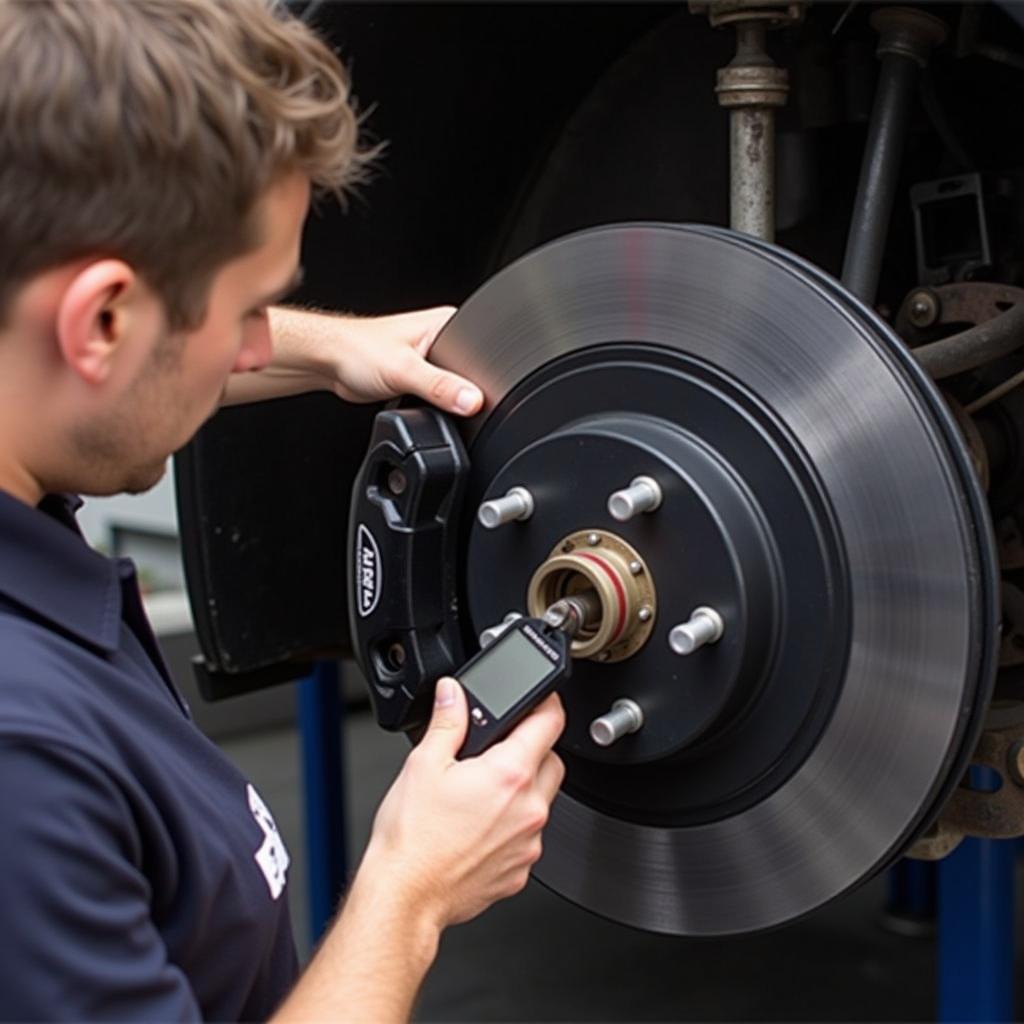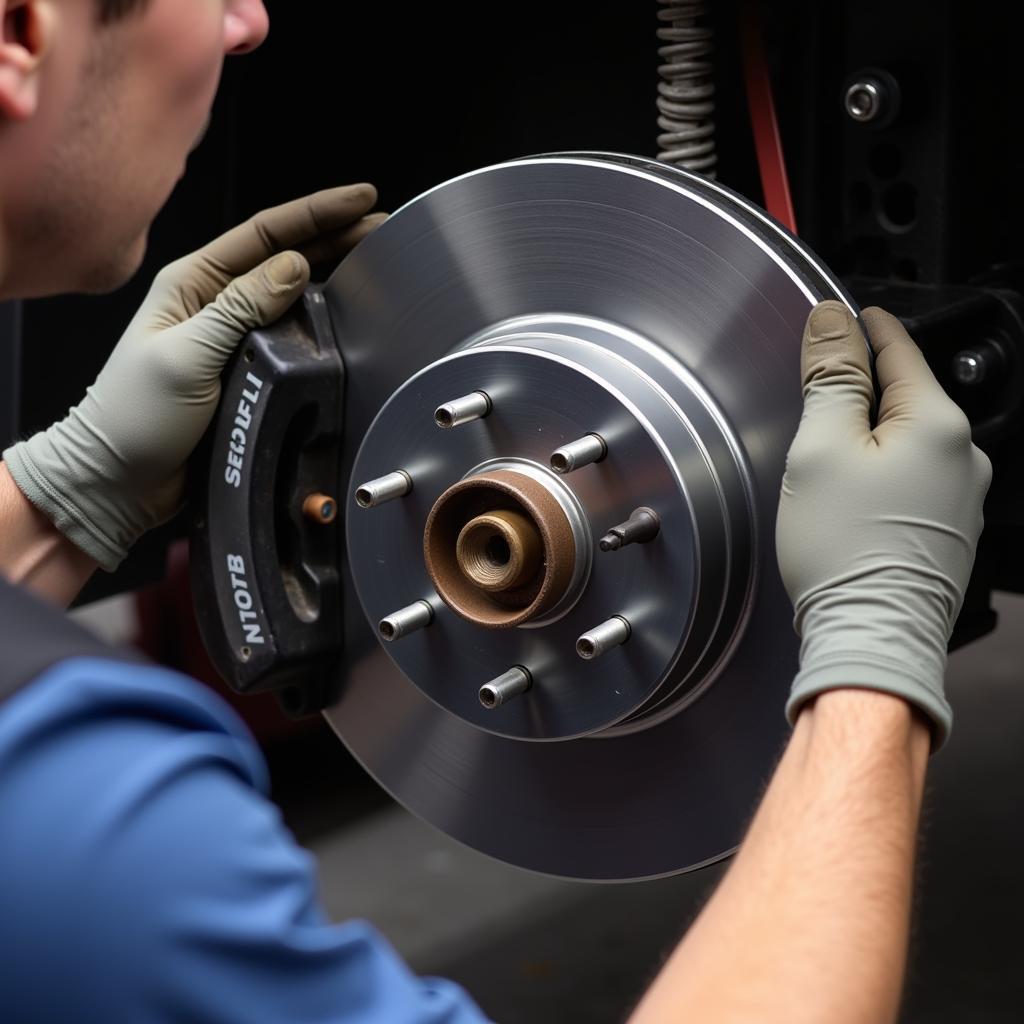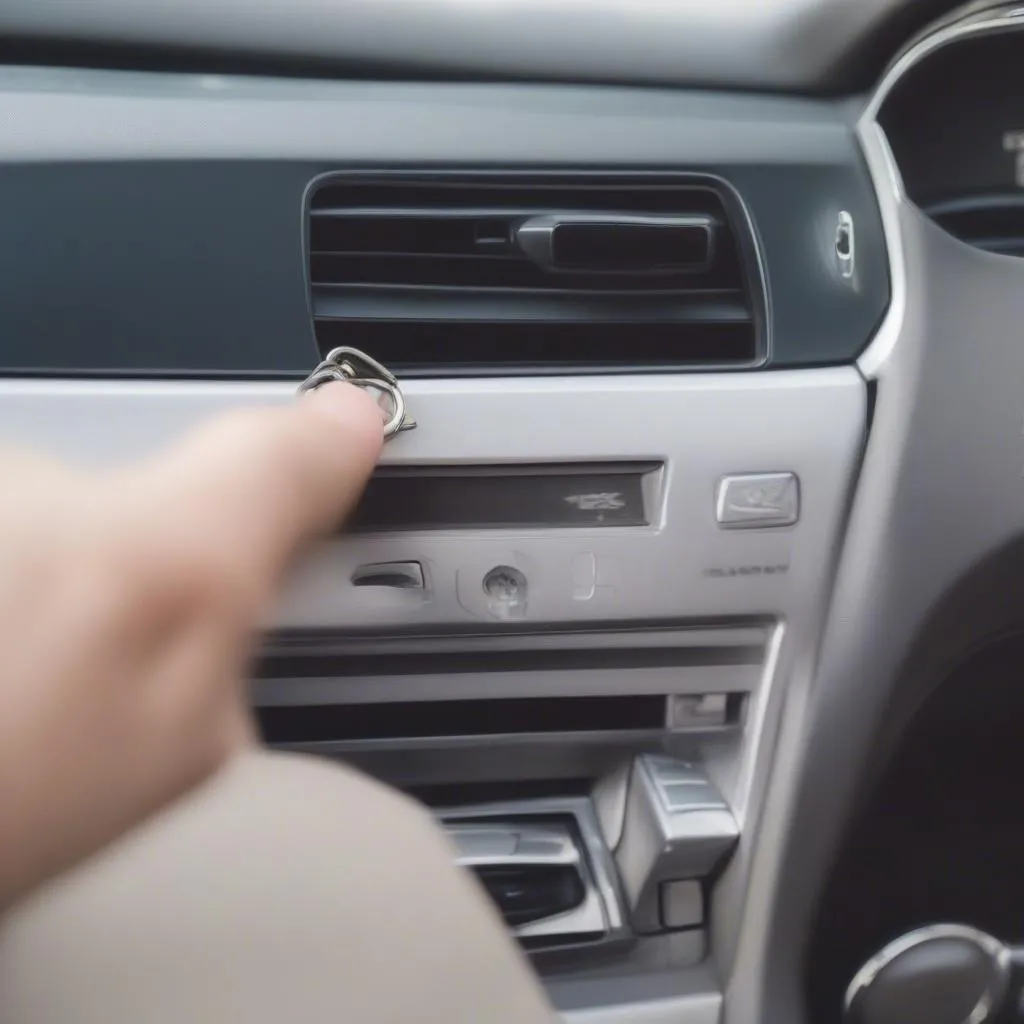The brake pad warning light on your dashboard is designed to alert you to a potential problem with your braking system. So, when the “2004 VW Passat brake pad warning” lights up, it’s crucial to address the issue promptly. Ignoring this warning could lead to more serious and expensive repairs down the line.
This article will guide you through the common causes of the brake pad warning light in a 2004 Volkswagen Passat, how to diagnose the problem, and potential solutions.
Understanding the Brake Pad Warning System
The brake pad warning light is part of a simple yet effective system that monitors the thickness of your brake pads. A sensor, embedded within the brake pad itself, sends a signal to your car’s computer when the pad wears down to a certain level. This triggers the warning light on your dashboard, urging you to inspect your brakes.
Common Causes of a 2004 VW Passat Brake Pad Warning
While worn brake pads are the most common culprit, several other issues can trigger the brake pad warning light in your 2004 VW Passat:
- Worn Brake Pads: As brake pads wear down, the sensor embedded within them eventually touches the brake rotor, completing a circuit and triggering the warning light.
- Faulty Brake Pad Sensor: Like any electrical component, brake pad sensors can fail. A break in the sensor wire or a malfunctioning sensor itself can cause a false warning.
- Low Brake Fluid: Low brake fluid level can also trigger the brake pad warning light. This is because low fluid level often indicates a leak in the braking system, which can seriously compromise your ability to stop safely.
- Worn Brake Rotors: While not directly related to the brake pad warning system, severely worn brake rotors can cause the pads to wear down more quickly, indirectly triggering the warning light.
 Worn Brake Pads
Worn Brake Pads
Diagnosing the Problem: Is it Time for New Brake Pads?
If your 2004 VW Passat brake pad warning light is on, follow these steps to diagnose the issue:
-
Check the Brake Fluid Level: Locate the brake fluid reservoir under the hood. Ensure the fluid level is between the minimum and maximum marks. If the fluid level is low, there might be a leak in the system requiring immediate attention from a mechanic.
-
Inspect the Brake Pads: If the brake fluid level is fine, it’s time to inspect the brake pads themselves. You can often visually check the pad thickness through the spaces between the wheel spokes. If the pad material is less than 1/4 inch thick, it’s time for replacements.
 Brake Pad Inspection
Brake Pad Inspection
- Test the Brake Pad Sensor: If the brake pads appear to have sufficient thickness, the sensor might be faulty. A qualified mechanic can test the sensor’s continuity with a multimeter to determine if it’s sending a false signal.
“It’s important to remember that visual inspection alone might not be enough to assess the condition of your brakes. Consulting a qualified mechanic for a thorough inspection is always recommended.” – John Miller, Senior Automotive Technician.
Addressing the Brake Pad Warning: Solutions and Repairs
- Brake Pad Replacement: If your brake pads are worn, replacing them is the most common solution. It’s crucial to use high-quality brake pads compatible with your 2004 VW Passat.
 New Brake Pads Installation
New Brake Pads Installation
-
Brake Pad Sensor Replacement: If the sensor is faulty, it needs replacement. This is a relatively inexpensive repair that can be done simultaneously with brake pad replacement.
-
Brake Fluid Flush and Refill: If the brake fluid level is low, addressing the leak and flushing the old fluid with new, DOT 4 brake fluid compatible with your VW Passat is essential.
-
Brake Rotor Inspection/Replacement: While inspecting your brakes, it’s wise to check the condition of your brake rotors. If they are warped or excessively worn, resurfacing or replacement might be necessary.
“Remember, regular brake system maintenance can prevent many issues before they arise. Following the manufacturer’s recommended maintenance schedule for your 2004 VW Passat is key to ensuring optimal braking performance and safety.” – John Miller, Senior Automotive Technician.
Conclusion
Addressing the “2004 VW Passat brake pad warning” promptly is crucial for your safety and the longevity of your vehicle. While worn brake pads are the most frequent cause, various other factors might be at play. Regular maintenance and timely repairs are vital for optimal braking performance. If you’re unsure about diagnosing or fixing the issue yourself, seek assistance from a qualified mechanic. Remember, a well-maintained braking system is fundamental to a safe and enjoyable driving experience.
FAQs about 2004 VW Passat Brake Pad Warning
1. How often should I replace my brake pads?
Brake pad lifespan varies greatly depending on driving habits and conditions. However, it’s generally recommended to have them inspected every 12,000 miles and replaced if they are less than 1/4 inch thick.
2. Can I drive with the brake pad warning light on?
While you might be able to drive for a short distance, it’s highly discouraged. Continuing to drive with worn brake pads can damage your rotors and severely compromise your braking ability, leading to dangerous situations.
3. How much does it cost to replace brake pads on a 2004 VW Passat?
The cost can vary depending on the type of brake pads used and labor costs in your area. However, you can generally expect to pay between $150 and $300 for brake pad replacement.
4. Can I replace my brake pads myself?
If you have mechanical experience, you can replace brake pads yourself. However, it’s a safety-critical system, and if you’re unsure about any step, it’s best to have it done by a professional.
5. Can I use any brake pads for my 2004 VW Passat?
No, it’s crucial to use brake pads specifically designed for your car’s make, model, and year. Consult your owner’s manual or a reputable parts supplier to ensure you get the correct brake pads.

